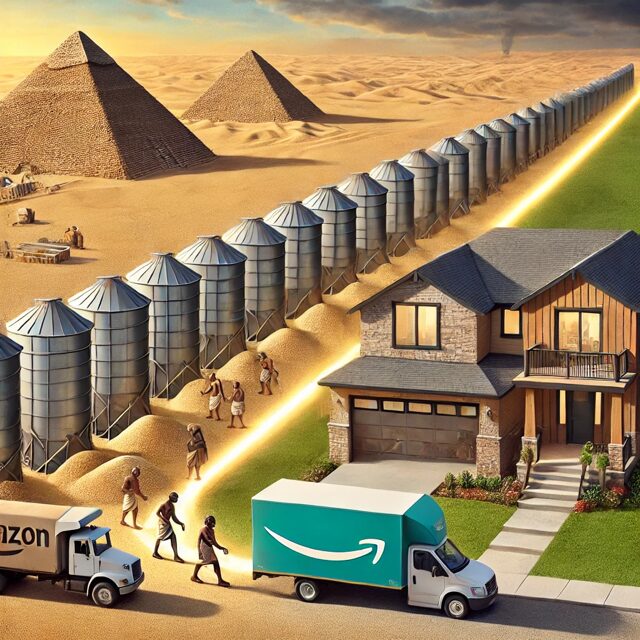Throughout history, the ability to foresee and prepare for potential challenges has been a defining trait of successful civilizations. From ancient grain storage strategies to modern emergency planning, the principle of readiness remains a timeless and essential virtue. Yet today, in a world of instant gratification and reliance on conveniences, we risk losing this wisdom. Let’s explore what history teaches us about preparedness, how society has shifted, and why rediscovering these lessons is more critical than ever.
Lessons from History: Civilizations that Prepared and Those That Didn’t
History offers profound examples of societies that thrived due to their foresight and others that faltered because of neglect.
• Ancient Egypt and the Foresight of Joseph
One of the earliest recorded examples of preparedness is found in the Bible’s Book of Genesis (41:46-57). Joseph, forewarned by Pharaoh’s dream of seven years of abundance followed by seven years of famine, advised storing surplus grain during the good years. When famine struck, Egypt not only survived but also became a refuge for neighboring regions. This story underscores how strategic planning and sacrifice during prosperous times can safeguard the future.
• The Fall of the Indus Valley Civilization
By contrast, the Indus Valley Civilization offers a cautionary tale. While advanced in many respects, including urban planning, they failed to adapt to changing climatic conditions and natural disasters. Without sufficient resources to endure hardships, this once-thriving society faded into obscurity, reminding us of the consequences of ignoring warning signs.
These examples highlight a stark reality: preparedness often determines whether a civilization endures or collapses.
From Self-Reliance to Modern Dependency
In the past, individuals and communities bore the responsibility for their survival. Families stored food, built shelters, and devised contingency plans for harsh winters, droughts, or conflicts. Emergency preparedness was woven into the fabric of daily life.
Today, we’ve shifted away from this mindset. We depend on global supply chains and corporations like Amazon and Walmart for essential goods. While convenient, this reliance makes us vulnerable. A sudden disruption in these systems—be it a natural disaster, cyberattack, or prolonged power outage—could leave millions unprepared. The wisdom of our ancestors, who valued self-reliance and resilience, is being forgotten, leaving us ill-equipped to handle the unexpected.
Timeless Biblical Wisdom
Faith traditions offer profound insights into the importance of readiness:
• Christian Perspective: The Parable of the Ten Virgins (Matthew 25:1-13) vividly illustrates the consequences of being unprepared. Ten virgins await a bridegroom, but only five bring enough oil for their lamps. When the bridegroom arrives unexpectedly, the unprepared are left in the dark. This parable serves as a powerful reminder to stay vigilant and prepared for life’s uncertainties.
• Jewish Perspective: Joseph’s preparation for famine in Genesis (41:46-57) is another enduring example. By heeding warnings and taking action, Joseph not only saved Egypt but also preserved countless lives. His story emphasizes the importance of planning not just for oneself but for the community.
A Call to Action: Rediscovering Readiness
The lessons of history and scripture are clear: preparation is not just a practical measure but a moral and societal imperative. In our modern world, where the unexpected can upend lives, preparedness is more crucial than ever.
At OnPoint Readiness, we are committed to helping individuals and families reclaim the timeless value of preparedness. Whether you need guidance in developing a readiness plan, assembling essential supplies, or creating a tailored strategy for your unique circumstances, we provide professional consulting to ensure you’re ready for whatever comes your way.
Don’t wait for the unexpected to catch you off guard. Contact OnPoint Readiness today and take the first step toward peace of mind and resilience. Together, we can build a future that honors the wisdom of the past while embracing the tools of today.

